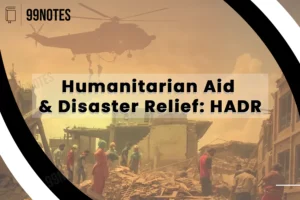19 August 2023 : Daily Current Affairs
Daily Current Affairs
- Daily Current Affairs
- 1. MOODY’S RATING
- Topic: GS3-Economy
- Context:
- About ‘Baa3’ rating
- Factors that could lead to a downgrade of rating:
- Positive signs:
- Negative signs:
- Moody’s Analysis:
- Way forward:
- 2. India sets up it’s first 3D-printed post office.
- Topic: GS3-Science and tech
- Context:
- What is 3D printing?
- How is 3D printing done?
- Where is 3D printing used?
- Way forward:
- 3. ANCIENT FIRES DROVE BIG MAMMALS TO EXTINCTION, STUDY SUGGESTS
- Topic: GS3-Science and tech
- Context:
- Why in News?
- Details:
- Way forward:
- 4. US, Japan and S Korea to enter into security pact for the Pacific. Topic: GS2-IR
- Context:
- Details:
- Criticism from China:
- 5. India to hold FTA meetings with UK next week.
- Topic: GS3-Economy
- Context:
- Details:
- 6. Innovations in healthcare must be for public good: PM
- 7. Tamil Nadu CM calls for retrieving Katchatheevu
- 8. CM Baghel hurls nepotism charge at BJP.
- 9.LS privileges panel to hear Adhir Ranjan on August 30
- 10. Criminal law Bills sent to committee on Home Affairs
- 6. Moody’s affirms India rating, flags Manipur
- For Enquiry
19-August-2023
Daily Current Affairs For UPSC ,Daily Current affairs of The hIndu and Indian Express.
1. MOODY’S RATING
Topic: GS3-Economy
Context:
- Affirming India’s sovereign rating at ‘Baa3’ with a stable outlook and underlining that it expected the country’s economic growth to outpace all other G20 economies through at least the next two years, Moody’s Investors Service however, said “the curtailment of civil society and political dissent, compounded by rising sectarian tensions” supported a weaker assessment of political risk and the quality of institutions.
About ‘Baa3’ rating
- Baa3 is the lowest rating in the investment grade.
- Obligations rated Baa are subject to moderate credit risk.
- The Baa obligations are considered medium grade and as such may possess speculative characteristics, according to Moody’s ratings scale.
- In 2017, Moody’s had raised India’s sovereign rating to Baa2 for the first time since 2004 but downgraded it to Baa3 in 2020.
Factors that could lead to a downgrade of rating:
- According to New York based Moody’s an escalation of political tensions and/or a further weakening of checks and balances that would undermine India’s long term growth potential would likely contribute to a downgrade.
- Durably weaker growth than currently projected would contribute to an ongoing rise in the debt burden, which would weaken the sovereign’s fiscal strength and put downward pressure on the rating.
- In addition, a resurgence of financial sector stress that is unlikely to be addressed promptly and effectively would also put downward pressure on the rating.
Positive signs:
- The rating agency endorsed the government’s management of the overall fiscal situation, its infrastructure push and the implementation of the digital public infrastructure.
- According to Moody’s the affirmation and stable outlook driven by India’s economy is likely to continue to grow rapidly by international standards, although potential growth has come down in the past 7-10 years.
- While the RBI has projected the country’s real GDP growth at 6.5 per cent in the fiscal 2024, as per Moody’s high GDP growth will contribute to gradually rising income levels and overall economic resilience, which in turn, will support gradual fiscal consolidation and government debt stabilisation, albeit at high levels.
Negative signs:
- While the Moody’s report highlighted the stronger macro policy effectiveness, it flagged the weakening institutions and rising political tensions.
- One recent event illustrative of these trends is the eruption of unrest in the north-eastern state of Manipur which is one of the poorest states in India —that has led to at least 150 deaths since May 2023, and underpinned a no-confidence vote on Prime Minister Narendra Modi in August, although this was ultimately unsuccessful.
- Although elevated political polarization is unlikely to lead to a material destabilization of government, rising domestic political tensions suggest an ongoing risk of populist policies including at the regional and local government levels— amid the prevalence of social risks such as poverty and income inequality, as well as inequitable access to education and basic services.
- Also, the periodic flaring of border tensions with neighbouring countries was an outlier among sovereigns assessed as having a lower overall susceptibility to political risk.
Moody’s Analysis:
- Moody’s said it expects India’s economic growth to outpace all other G20 economies through at least the next two years, driven by domestic demand.
- It said the government’s ongoing emphasis on infrastructure development, mirrored in the increasing share of capital expenditure in the Union Budget has led to tangible improvements in logistic performance and the quality of trade and transport-related infrastructure.
- This has complemented the government’s implementation of its digital public infrastructure—which has entailed the widespread adoption of digital payments and data exchange— in enhancing the efficiency of public service delivery, while also boosting the formalization of the economy and broadening the tax base.
- Moody’s said the fundamental improvement in the banking system’s financial soundness over the last three years has also allowed the private sector to leverage buoyant domestic sentiment and channel funding towards capital formation beyond the immediate rebound from the pandemic, as evidenced by the robustness of credit growth.
- It said over the longer term, constraints on the economy’s ability to deliver a significant increase in manufacturing and improvements in job creation will limit potential growth.
- Despite some upside pressures on spending to help the economy cope with higher inflation, the government has been able to meet its fiscal deficit targets at the central government level over the past two years, aided by buoyant tax revenue.
Way forward:
- The restoration of robust growth prospects post pandemic, the effective commitment to inflation targeting and the rehabilitation of the financial system aided by reform supports Moody’s view of strengthening monetary and macro policy effectiveness.
- Hence India should continue to work in the right direction in order to improve its ratings further.
2. India sets up it’s first 3D-printed post office.
Topic: GS3-Science and tech
Context:
- India’s first 3D-printed post office was virtually inaugurated by Union Minister Ashwini Vaishnaw in Bengaluru’s Cambridge Layout on Friday. It’s construction was completed in just 43days— two days ahead of the deadline.
- Invented more than four decades ago, 3D printing burst into the mainstream around the 2010s, when many thought it would become part of everyday life. The technology, however, was expensive, slow and prone to making errors. In recent years, many of these flaws have been corrected, making 3D printing more prevalent than ever before.
What is 3D printing?
- 3D printing, also known as additive manufacturing, is a process that uses computer-created design to make three dimensional objects, layer by layer. It is an additive process, in which layers of a material like plastic, composites or bio-materials are built up to construct objects of various shapes, sizes, rigidity and colours.
How is 3D printing done?
- To carry out 3D printing, one needs a computer connected to a 3D printer. All they need to do is design a 3D model of the required object on computer-aid design (CAD) software and press ‘print’. The 3D printer does the rest of the job.
- 3D printers construct the desired object by using a layering method, which is the opposite of the subtractive manufacturing processes.
- An ideal example of the subtractive manufacturing method would be that of the great Italian sculptor Michelangelo making his masterpiece David where he famously carved out the colossal statue from a single block of marble.
- 3D printers, on the other hand, build from the bottom up, by piling on layer after layer until the object looks exactly like it was envisioned.
- The (3D) printer acts generally the same as a traditional inkjet printer in the direct 3D printing process, where a nozzle moves back and forth while dispensing a wax or plastic-like polymer layer by layer, waiting for that layer to dry, then adding the next level. It essentially adds hundreds or thousands of 2D prints on top of one another to make a three-dimensional object.
Where is 3D printing used?
- 3D printing has found use in a host of industries like healthcare, automobile and aerospace.
- Recently, Chennai-based space-tech startup Agnikul announced that it has developed a rocket with an entirely3D-printed engine.
- In 2020, at the peak of the Covid-19 pandemic, the healthcare industry used 3D printers to make much-needed medical equipment like swabs, face shields, and masks, as well as parts for ventilators.
Way forward:
- This technological marvel needs to be effectively utilized as it would set a benchmark for future inventions. It’s applications surely would have a great impact in our day to day life if used on a larger scale.
3. ANCIENT FIRES DROVE BIG MAMMALS TO EXTINCTION, STUDY
SUGGESTS
Topic: GS3-Science and tech
Context:
- In a new study published on August 17 in Science, palaeontologists analysed fossil records at La Brea Tar Pits in Southern California, concluding that the disappearance of sabretooth cats, dire wolves and other large mammals in the region nearly13,000 years ago was linked to rising temperatures and increased fire activity spurred by people.
Why in News?
- As wildfires get increasingly worse, records of the distant past can reveal what once drove increased fire activity and what can happen as a result.
Details:
- According to Robin O’Keefe, an evolutionary biologist and leader of the research team, we as humans are the primary cause of the tipping point.
- La Brea Tar Pits, filled with bubbling black asphalt, boasts a continuous fossil record of the region stretching as far back as 55,000 years.
- Analysing fossils for eight large mammal species alongside climate, pollen and fire records in the region as well as continental human population growth of around 13,000 years ago, researchers found that human occupation began to rise rapidly about the same time that Southern California entered a period of severe drought and warming, with extreme fires ensuing.
Way forward:
- This study is a great example of how we can use the past to portend the future.
4. US, Japan and S Korea to enter into security pact for the Pacific.
Topic: GS2-IR
Context:
- President Joe Biden opened a historic summit with Japan and South Korea at Camp David on Friday focused on strengthening security and economic ties at a time of increasing concerns about North Korea’s persistent nuclear threats and China’s provocations in the Pacific.
Details:
- The US, Japan and South Korea have agreed to a new security pledge committing the three countries to consult with each other in the event of a security crisis or threat in the Pacific.
- Details about the new “duty to consult” commitment emerged as the summit got underway.
- The “duty to consult” pledge is intended to acknowledge that the three countries share fundamentally inter linked security environments and that a threat to one of the nations is a threat to all.
Criticism from China:
- Even before the summit began, it drew public criticism from China’s government who stated that such ventures would only lead to increase in contradictions and tensions.
5. India to hold FTA meetings with UK next week.
Topic: GS3-Economy
Context:
- High level meetings of ministers and top officials of India and the UK are scheduled next week to review the progress of talks for the proposed free trade agreement (FTA) between the two countries.
Details:
- The meetings assume significance as both countries have reached a crucial juncture of the FTA negotiations.
- Bilateral meetings will also be held with the official teams of the European Union (EU) and Canada.
- These teams are arriving for the two-day Trade and Investment Ministerial Meeting (TIMM) in Jaipur which is commencing on August 24.
- High-level bilateral meetings will be held with countries such as the UK, Canada and EU to discuss progress with regard to proposed free trade agreements.
- Negotiations on such agreements are underway with all these countries.
- Out of 26 chapters in the proposed FTA, 19 have been closed.
6. Innovations in healthcare must be for public good: PM
Topic: GS3 – Health sector.
Context:
- Prime Minister Narendra Modi emphasized the need to open up digital healthcare innovations for public benefit.
More about the news:
- He urged G-20 Health Ministers to avoid funding duplication and ensure equitable availability of healthcare technology.
- Modi highlighted the Global Initiative on Digital Health as a means to bridge healthcare gaps, contributing to universal health coverage.
- The COVID-19 pandemic underscored the importance of health-centered decisions and international cooperation.
- Resilience in global health systems is crucial, according to Modi, to prevent, prepare, and respond to future health emergencies.
- He expressed concerns about antimicrobial resistance and praised India’s progress toward eliminating tuberculosis ahead of the global target.
Importance of innovations in health care for India:
- Improves healthcare access
- Enhances treatment effectiveness
- Increases diagnostic accuracy
- Enables remote healthcare delivery
- Facilitates data-driven decision-making
- Addresses healthcare gaps
- Supports preventive measures
Challenges:
- Limited access to healthcare in remote areas
- Uneven distribution of healthcare resources
- High cost of advanced treatments
- Lack of digital literacy among patients
- Data privacy and security concerns
- Regulatory hurdles for new technologies
- Resistance to change within healthcare systems
Model question: What are the challenges hindering the effective implementation of innovative digital healthcare solutions in India? How can these challenges be overcome to enhance healthcare delivery and bridge existing gaps?
7. Tamil Nadu CM calls for retrieving Katchatheevu
Topic: GS2 – International relations
Context:
- Chief Minister M.K. Stalin expressed that reclaiming the Katchatheevu islet from Sri Lanka would permanently resolve issues faced by Tamil Nadu fishermen.
- He made this statement during a fishermen conference in Mandapam, Ramanathapuram district.
The conflict over Katchatheevu Islands – Explained:
The conflict over Katchatheevu Islands revolves around the territorial ownership and fishing rights of the islet situated in the Palk Strait between India and Sri Lanka. Here are the key points regarding the conflict:
- Historical Background: Katchatheevu, a small uninhabited island, was traditionally used by fishermen from both India and Sri Lanka for centuries. It was under the control of the Ramanathapuram district of Tamil Nadu in India. However, in 1974, India and Sri Lanka signed an agreement known as the “Katchatheevu Treaty,” which ceded the island to Sri Lanka.
- Controversial Transfer: The transfer of Katchatheevu to Sri Lanka was a contentious issue in India, especially among Tamil Nadu politicians and fishermen. They argued that the island’s transfer was done without the consent of the State government and without considering the impact on Indian fishermen’s livelihoods.
- Fishing Rights: One of the main points of contention is the fishing rights of Indian fishermen in the surrounding waters of Katchatheevu. After the transfer, Indian fishermen claimed that they faced increased harassment from the Sri Lankan Navy while fishing in their traditional fishing grounds near the island.
- Impact on Fishermen: Tamil Nadu fishermen have raised concerns that the loss of Katchatheevu has restricted their access to fishing grounds, affecting their livelihoods and causing economic hardships.
- Political Demands: Over the years, various political parties in Tamil Nadu, including the DMK and AIADMK, have consistently demanded the retrieval of Katchatheevu from Sri Lanka. They argue that the island’s transfer was unconstitutional and that the interests of Indian fishermen need to be safeguarded.
- Diplomatic Tensions: The conflict over Katchatheevu has at times strained India-Sri Lanka relations, with both countries engaging in diplomatic discussions to address the issues related to fishing rights and territorial disputes.
Model question: “Discuss the historical and contemporary issues surrounding the conflict over Katchatheevu Islands between India and Sri Lanka. Analyze the implications of the 1974 Katchatheevu Treaty on fishing rights and livelihoods of Indian fishermen.”
8. CM Baghel hurls nepotism charge at BJP.
Topic: GS2 – Indian polity.
Context:
- Chhattisgarh CM Bhupesh Baghel criticized the BJP for nepotism.
- He questioned the party’s decision to include Vikrant Singh, nephew of former CM Raman Singh, in its candidate list for the 2023 Assembly polls.
Impact of nepotism in politics:
- Undermines Meritocracy: Nepotism can lead to the appointment of individuals based on family connections rather than merit and qualifications.
- Reduces Public Trust: Public perception of fairness and equal opportunities is eroded, leading to decreased trust in political institutions.
- Limits Diversity: Nepotism often prevents a diverse pool of talent from participating in politics, hindering representation of different perspectives.
- Hinders Progress: Inefficient and unqualified individuals in positions of power can hinder policy-making and hinder socioeconomic progress.
- Encourages Corruption: Nepotism may create an environment conducive to corruption, favoritism, and unethical behavior.
- Weakens Democratic Values: It contradicts democratic principles of open competition and equal opportunity for all citizens.
- Diminishes Accountability: Politicians who engage in nepotism may prioritize family interests over public welfare, eroding accountability.
- Undermines Credibility: It weakens the credibility of political parties and leaders.
Way forward:
- Transparency and Accountability: Implement strict rules and regulations that require politicians to disclose any familial relationships or connections in appointments.
- Merit-Based Selection: Emphasize meritocracy in political appointments and candidacies, ensuring that individuals are chosen based on their qualifications and capabilities.
- Internal Party Reforms: Political parties should adopt internal codes of conduct that discourage nepotism and promote fair competition within the party.
- Strong Anti-Nepotism Laws: Enact laws that explicitly prohibit nepotism in politics and establish penalties for violations.
- Civic Education: Promote awareness among citizens about the negative impacts of nepotism and the importance of holding leaders accountable.
- Empowerment of Citizens: Encourage citizens to actively participate in political processes, making informed decisions and demanding transparency.
- Diverse Representation: Promote diversity in political leadership to counter the concentration of power within specific families or groups.
- Encourage Newcomers: Create pathways for new and diverse talent to enter politics, ensuring fresh perspectives and minimizing political dynasties.
- Media Vigilance: Media should play a watchdog role in exposing cases of nepotism and holding politicians accountable.
Model question: Discuss the impact of nepotism in politics on democratic governance and propose strategies to mitigate its negative consequences in the context of India.
9.LS privileges panel to hear Adhir Ranjan on August 30
Topic: GS2 – Indian polity.
Context:
- The Privileges Committee of Lok Sabha scheduled a meeting for August 30 to address the suspension of Congress leader Adhir Ranjan Chowdhury.
- Adhir Ranjan Chowdhury was suspended from Lok Sabha membership due to “unruly conduct” on August 11 during the Monsoon Session.
- Speaker Om Birla named him and referred the matter to the Privileges Committee for further review.
Constitutional provisions regarding Parliamentary privileges:
- Article 105: Grants certain privileges to members of Parliament, including freedom of speech within the Parliament.
- Article 122: Exempts certain proceedings of Parliament from being inquired into by any court.
- Article 194: Provides similar privileges and immunities to members of state legislatures.
- Article 212: Exempts certain proceedings of state legislatures from being inquired into by any court.
- Parliamentary Privileges Act, 1952: Regulates the powers, privileges, and immunities of Parliament and its members.
The need for Parliamentary privileges:
- Free Debate: Parliamentary privileges ensure legislators can freely express opinions, discuss policies, and criticize the government without fear of legal repercussions.
- Unbiased Decision-Making: Members must make decisions based on their conscience and constituents’ interests, free from external pressures.
- Accountability of Executive: Privileges allow MPs to question government actions, hold officials accountable, and ensure transparency in governance.
- Legislative Autonomy: Privileges safeguard the independence of the legislative branch from undue interference by the executive or judiciary.
- Protection from Defamation: Privileges offer protection to members when discussing matters of public interest, guarding against defamation suits.
- Open and Honest Discourse: Without the fear of legal actions, members can openly debate contentious issues and explore different viewpoints.
- Checks and Balances: Privileges maintain a balance of power between different branches of government, preventing abuse of authority.
Issues with Parliamentary privileges:
- Abuse of Power: Privileges can be abused for personal attacks or defamatory statements without legal consequences.
- Conflict with Expression: Privileges may clash with freedom of expression, creating a balance challenge.
- Ambiguity: Boundaries of privileges are unclear, causing disputes and confusion.
- Excessive Immunity: Immunity might shield misconduct or criminal behavior.
- Unregulated Powers: Lack of clear guidelines can lead to arbitrary use.
- Inefficiency: Enforcing privileges can be slow and ineffective.
- Secrecy Concerns: Privileges may hide actions from public scrutiny.
- Conflict with Public Interest: Protection may clash with public’s right to access information.
- Judiciary Influence: Contempt power might affect judicial independence.
- Reform Gap: Privileges lack modernization and alignment with democracy.
- Selective Use: Application might be politically motivated.
Way forward:
- Comprehensive Reforms: Revise and modernize privilege laws to align with democratic principles and strike a balance between rights and responsibilities.
- Clear Guidelines: Define privileges’ scope and limits to prevent arbitrary use and clashes with other rights.
- Judicial Review: Establish a mechanism for judicial review of privilege-related actions to ensure fairness and accountability.
- Accountability Measures: Implement mechanisms to hold members accountable for misuse of privileges, ensuring responsible behavior.
- Independent Oversight: Establish an independent body to oversee privilege claims, avoiding conflicts of interest.
- Media and Civil Society Engagement: Involve media and civil society to monitor and assess the use of privileges.
- Consultative Approach: Involve experts, legal scholars, and stakeholders in drafting and amending privilege laws.
- International Comparisons: Study practices in other democracies to adopt best practices and ensure relevance.
Model question: What are Parliamentary privileges? Discuss their importance in democratic values. Highlight challenges or controversies associated with the exercise of these privileges.
10. Criminal law Bills sent to committee on Home Affairs
Topic: GS2 – Indian polity.
Context:
- Three bills, namely the Bharatiya Nyaya Sanhita Bill, Bharatiya Nagarik Suraksha Sanhita Bill, and Bharatiya Sakhshya Bill, 2023, have been referred to the Standing Committee on Home Affairs.
- These bills aim to replace the Indian Penal Code (IPC), Code of Criminal Procedure (CrPC), and Indian Evidence Act, which were all framed by the British and enacted by the British Parliament.
- The Standing Committee on Home Affairs, led by BJP Rajya Sabha MP Brij Lal, has been tasked with conducting consultations and submitting a report on the three bills within three months.
Importance of standing committees in Parliamentary working:
- In-depth Analysis: Standing committees conduct thorough examinations of bills, policies, and issues, providing detailed insights and recommendations.
- Specialization: Committees focus on specific subjects, allowing members to develop expertise and make informed decisions.
- Efficient Workload: Committees distribute legislative work, enabling Parliament to handle a diverse range of topics simultaneously.
- Checks and Balances: Committees scrutinize government actions, ensuring accountability and preventing undue concentration of power.
- Legislative Improvement: Committees suggest amendments and improvements to bills, enhancing their quality.
- Informative Reports: Committees produce comprehensive reports that aid legislators in decision-making.
- Bipartisanship: Committees foster bipartisan cooperation, leading to more well-rounded policies.
Challenges faced by Parliamentary committees:
- Time Constraints: Limited time for in-depth analysis due to busy legislative schedules.
- Workload Management: Balancing multiple bills and topics for examination can affect the thoroughness of scrutiny.
- Resource Constraints: Limited staff and budget can hinder effective research and analysis.
- Political Influence: Party interests may impact impartiality and objectivity in committee proceedings.
- Limited Expertise: Members may lack expertise in specific subjects under consideration.
- Member Participation: Uneven participation can lead to skewed outcomes.
- Delayed Report Submission: Overcoming delays in submitting reports to the Parliament.
- External Pressures: Influences from stakeholders, interest groups, or executive can compromise independence.
Model question: Discuss the significance of standing committees in strengthening legislative processes and ensuring executive accountability. Also, highlight the challenges faced by these committees in carrying out their functions effectively.
6. Moody’s affirms India rating, flags Manipur
Topic: GS2 – Indian economy.
Context:
- Moody’s reaffirms India’s rating at Baa3 with a stable outlook.
More about the news:
- India’s economy expected to continue rapid growth compared to international standards.
- Economic growth driven by strong domestic demand.
- Monetary and macro policy effectiveness seen as strengthened.
- Concerns raised about weakening institutions and rising political tensions.
- Recent unrest in Manipur cited as an example of political risks.
- Curtailment of civil society and political dissent a concern.
- Rising sectarian tensions contribute to weaker political risk assessment.
- Risk of populist policies and social risks like poverty and income inequality mentioned.
Significance of credit rating:
- Creditworthiness Evaluation: Credit rating assesses the ability of countries to meet financial obligations.
- Investment Decision: Investors use credit ratings to gauge risk before investing in bonds, securities, or financial products.
- Borrowing Costs: Higher ratings lead to lower borrowing costs as entities are deemed less risky by lenders.
- Economic Health: Credit ratings reflect a country’s economic stability, influencing foreign investments and trade.
- Global Perception: Ratings affect international perception, impacting foreign relations and market access.
For Enquiry

19 August 2023 : The Hindu Editorial Notes PDF

19 August 2023 : Daily Current Affairs

Humanitarian Aid & Disaster Relief: HADR

Joint Military Exercises

18 August 2023 : Daily Answer Writing

18 August 2023 : Daily Quiz

18 August 2023 : Indian Express

18 August 2023 : PIB

18 August 2023 : The Hindu Editorial Notes PDF

18 August 2023 : Daily Current Affairs
August- The Hindu Editorial 19 August 2023 : The Hindu Editorial Notes PDF The Hindu Editorial
19-August-2023
Daily Current Affairs For UPSC ,The Hindu Editorial Summary
Facebook-f
Twitter
Youtube
1. The…
August Daily Current Affairs 19 August 2023 : Daily Current Affairs Daily Current Affairs
19-August-2023
Daily Current Affairs For UPSC ,Daily Current affairs of The hIndu…
Blogs Upsc Humanitarian Aid & Disaster Relief: HADR HADR are the exercises that Indian armed forces and Disaster response forces conduct to rescue civilians…
Blogs Upsc Joint Military Exercises What is a Military Exercise?
It is a military operation that aims to demonstrate operational capabilities…
mains answer writing 18 August 2023 : Daily Answer Writing Mains Answer Writing
One of the key components of these exams is the written test, which consists of…
Daily Quiz 18 August 2023 : Daily Quiz 18 August 2023 : Daily Quiz…
August 2023 Indian Express 18 August 2023 : Indian Express Indian Express
18-August–2023
The Indian Express, CSE candidates can stay informed about current…
August PIB 2023 18 August 2023 : PIB PRESS INFORMATION BUREAU
18-August -2023
Daily Current Affairs For UPSC ,The PIB ( Press Information…
August- The Hindu Editorial 18 August 2023 : The Hindu Editorial Notes PDF The Hindu Editorial
18-August-2023
Daily Current Affairs For UPSC ,The Hindu Editorial Summary
Facebook-f
Twitter
Youtube
1. Now,…
August Daily Current Affairs 18 August 2023 : Daily Current Affairs Daily Current Affairs
18-August-2023
Daily Current Affairs For UPSC ,Daily Current affairs of The hIndu…



